Originally built as a temperance hotel in 1888 by Mrs Sarah Dorothy Miller of Shotover House, The Merry Bells is a substantial building, offering rooms to hire for any occasion.
Located in the heart of the village of Wheatley - seven miles east of Oxford just a mile from Junction 8/a of the M40. Car parking is available directly behind the building. It provides a central location for many clubs, interest groups and social events.
The building was purchased by the village in 1970 and is now a Charitable Trust run by a Management Committee “for the purposes of a Village Hall for the use of inhabitants of Wheatley without distinction of political, religious or other opinions including use for meetings, lectures and classes and for other forms of recreation and leisure-time occupation with the object of improving the conditions of life for the said inhabitants.” The philosophy is to promote and encourage the use of the facilities for all.
Click here to view the Wheatley Archives
Extract from The Merry Bells Centenary booklet 1988
From Jackson’s Oxford Journal
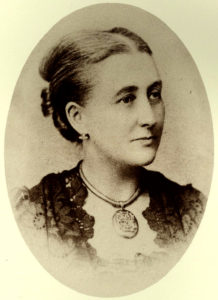 A large and commodious building known as the “Merry Bells” Coffee House, was formally opened under the most favourable circumstances on Tuesday evening. The house is the generous gift of a lady who is an ardent worker in the cause of temperance – Mrs. Miller, of Shotover Hill House, near Wheatley. She has borne the entire expense of the erection of the “Merry Bells”, and the very commendable motives which prompted her action has been the improvement of the social condition of the labourers of the village and the spread of the temperance principles among them. Mrs. Miller intends that the building shall be conducted on unsectarian lines and hopes that it will be largely used by all classes of the community for whose benefit she has had it put up.
A large and commodious building known as the “Merry Bells” Coffee House, was formally opened under the most favourable circumstances on Tuesday evening. The house is the generous gift of a lady who is an ardent worker in the cause of temperance – Mrs. Miller, of Shotover Hill House, near Wheatley. She has borne the entire expense of the erection of the “Merry Bells”, and the very commendable motives which prompted her action has been the improvement of the social condition of the labourers of the village and the spread of the temperance principles among them. Mrs. Miller intends that the building shall be conducted on unsectarian lines and hopes that it will be largely used by all classes of the community for whose benefit she has had it put up.
The Coffee House consists of two storeys comprising two large meeting rooms, a refreshment bar, a bath-room, cubicles, commercial and travellers’ rooms, and stable accommodation for four horses, the whole being fitted up with the most modern conveniences. The architect was Mr. Tollit, whose plans were executed by Mr. Kingerlee, of Banbury. To inaugurate the opening of the premises the labourers and their wives of the Parish of Wheatley and Littleworth and those working on the Shotover Estate, were invited to partake of a free tea provided at the “Merry Bells” on Tuesday evening. The invitation naturally met with a heavy response and a company of about 450 inhabitants of the villages sat down to the first public tea ever provided in the house. The manager and his wife (Mr. & Mrs Ayling) placed a good meal upon the tables and a number of the ladies and gentlemen volunteer helpers busied themselves attending to the requirements of the guests. Valuable assistance was rendered by several of the tradesmen of the district, amongst them being Messrs. Welby, Harris, Stamp and others. The tables were embellished with some flowering plants.
Following the meal, there was a public meeting. The large room, which can be divided into sections by means of partitions was crowded with an over-flowing audience, all of whom appeared thoroughly interested in the proceedings. The Vicar of Wheatley (the Rev. Charles Firmstone) presided. Among those on or near the platform were Mrs. Miller, Miss Miller, Miss Biscoe, Miss Bennett, Miss Hancock, the Misses Firmstone, Major-General Desborough, C.B., Rev. W. Neame (Forest Hill), Rev. W. H. Moull, B. A. (All Souls, Langham Place, London), Rev. W. Bird (Congregational Minister), Captain Stanfield, and Mr. A. Miller.
The opening hymn was “Now thank we all our God,” after which the Rev. W. H. Moull engaged in prayer.
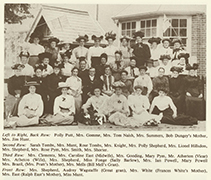 The Chairman in the course of his opening remarks, said he wished to say how very thankful and happy he was sure they all were at having been invited to take part in the opening of that splendid building that evening. (Applause.) He was sure it gave them the greatest pleasure to be there on that occasion. The building which they now saw “as large as life” had long existed in the minds of many persons. He hoped, as Mr. Moull had said in his prayer, that God would bless and prosper the building for the good of the parish. (Applause.) It was to Mrs. Miller that they were indebted for that beautiful building. (Applause.) That lady had not only expended money, but thought and care upon it. He was sure that all present owed her a great debt of gratitude. If Mr. Miller saw that the place was a blessing to Wheatley – as he hoped and trusted it would be, and they must make up their minds that it would be so – he was sure that that lady would feel most amply repaid for all the care and trouble and pains that she had taken to provide the parishes for which it was intended with such a building (Applause.)
The Chairman in the course of his opening remarks, said he wished to say how very thankful and happy he was sure they all were at having been invited to take part in the opening of that splendid building that evening. (Applause.) He was sure it gave them the greatest pleasure to be there on that occasion. The building which they now saw “as large as life” had long existed in the minds of many persons. He hoped, as Mr. Moull had said in his prayer, that God would bless and prosper the building for the good of the parish. (Applause.) It was to Mrs. Miller that they were indebted for that beautiful building. (Applause.) That lady had not only expended money, but thought and care upon it. He was sure that all present owed her a great debt of gratitude. If Mr. Miller saw that the place was a blessing to Wheatley – as he hoped and trusted it would be, and they must make up their minds that it would be so – he was sure that that lady would feel most amply repaid for all the care and trouble and pains that she had taken to provide the parishes for which it was intended with such a building (Applause.)
Mrs. Miller (whose reception was a warm one) said she would try and explain to those before her what the building in which they were assembled was for or rather what it was not for. Some people said they did not approve of coffee houses because they took a man away from his home, and his wife, instead of which he ought to stay at home and make them happy. That was all very well if the husbands would always stay at home. (Laughter.) Neither father nor sons would always do so. It was natural for them, and she thought it was very much better for them to have a place to which they could go, and where they hoped they would not get any harm, or spend their money in public houses. If, instead of going home irritated after having spent money at the public houses, husbands came to that coffee house and had a good meal at a very low cost and went home in a good temper, she thought their wives would not blame her for having the building erected. (Applause.) She did not wish to say anything ill-natured about those who kept public houses, but she hoped they would some day try and find some other trade that would bring them in a great deal more and make them feel much happier than did the business in which they were at present engaged, and perhaps unconsciously leading people into error and mischief. (Applause.)
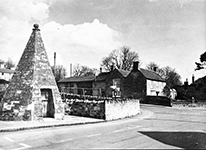 The building in which they had assembled that evening was intended to have a three fold purpose – (1) it was meant to be a place for refreshments, (2) an hotel in a sense, and (3) a clubroom. They knew that for a number of years there had been a very small attempt at the other end of the village in the way of a clubroom. There were, however, only two rooms and the boys and men always clashed. One of the rooms at the “Merry Bells” – the one at the further end – would be for the use of the boys, the middle one for the men’s recreation, and the one nearest the platform for a reading room. Men and boys could both come and read there but no noise would be allowed. A writing table would also be provided in the reading room. They had, too, a lending library, starting with 400 volumes, and it was hoped that that number would be increased. The library was primarily for the club members, who would be entitled to borrow books free of charge, and they would be lent out every Monday evening by the manager. There would be two sets of members. It would of course be a working men’s club – a labourers club - the members of which would have to pay sixpence a month. Then in addition to those would be honorary members, who would pay two shillings a year, and they would also have use of the library. If, however there were any outsiders who were not members of the club, but wished to borrow books, they could do so on payment of sixpence per quarter, and have a volume at a time, or pay a shilling and be enabled to have two volumes. In regard to the books, they had to thank the Rev. W. Neame, who had kindly sent them forty volumes – (applause) – and another gentleman friend of hers had also sent her a small cheque, which she had expended in purchasing copies of the Graphic.
The building in which they had assembled that evening was intended to have a three fold purpose – (1) it was meant to be a place for refreshments, (2) an hotel in a sense, and (3) a clubroom. They knew that for a number of years there had been a very small attempt at the other end of the village in the way of a clubroom. There were, however, only two rooms and the boys and men always clashed. One of the rooms at the “Merry Bells” – the one at the further end – would be for the use of the boys, the middle one for the men’s recreation, and the one nearest the platform for a reading room. Men and boys could both come and read there but no noise would be allowed. A writing table would also be provided in the reading room. They had, too, a lending library, starting with 400 volumes, and it was hoped that that number would be increased. The library was primarily for the club members, who would be entitled to borrow books free of charge, and they would be lent out every Monday evening by the manager. There would be two sets of members. It would of course be a working men’s club – a labourers club - the members of which would have to pay sixpence a month. Then in addition to those would be honorary members, who would pay two shillings a year, and they would also have use of the library. If, however there were any outsiders who were not members of the club, but wished to borrow books, they could do so on payment of sixpence per quarter, and have a volume at a time, or pay a shilling and be enabled to have two volumes. In regard to the books, they had to thank the Rev. W. Neame, who had kindly sent them forty volumes – (applause) – and another gentleman friend of hers had also sent her a small cheque, which she had expended in purchasing copies of the Graphic.
The bar would, of course, be open to all. She was anxious that the house meet with all the wants of the inhabitants of the place. Although they were not going to start on too magnificent a scale in the way of proposing joints, lighter necessaries such as tea, coffee, cocoa, bread and butter would be supplied. If they saw the least demand for it they would at once start cheap suppers, and endeavour to give a man a good meal for three-half-pence or two pence. She did not, however, for a moment wish to say that the women were not to take the trouble to cook. (Laughter.) It was in the hands of those whom she was addressing to make the place more elaborate. If it were found that a man desired to take something away for his breakfast or that there was a call for cheap dinners, the people should have them. (Applause.)
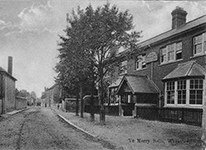 They would endeavour to meet the inhabitants of the place in every possible way. The house would be opened at 5:30 every morning and close at ten at night. It would be open every afternoon and evening during the week. She did not think they could have the place open on Sundays for various reasons. In the first place the manager and his wife – whom she hoped would do their utmost to make the venture a successful one – wanted rest as well as everyone else, and they could not attend place of worship if it were open. She did not wish to make the “Merry Bells” a counter attraction either to church or chapel. It was probable that the building would be open from 8:30 to 10:30 on Sunday evening in order to enable both men and boys to go there and read their Bibles or other books, or have some quiet conversation, and thus continue the good work of Sunday to the close of the day. Boys over the age of fourteen would be admitted to the youths department of the club, and young men of the age of sixteen to the men’s portion of it.
They would endeavour to meet the inhabitants of the place in every possible way. The house would be opened at 5:30 every morning and close at ten at night. It would be open every afternoon and evening during the week. She did not think they could have the place open on Sundays for various reasons. In the first place the manager and his wife – whom she hoped would do their utmost to make the venture a successful one – wanted rest as well as everyone else, and they could not attend place of worship if it were open. She did not wish to make the “Merry Bells” a counter attraction either to church or chapel. It was probable that the building would be open from 8:30 to 10:30 on Sunday evening in order to enable both men and boys to go there and read their Bibles or other books, or have some quiet conversation, and thus continue the good work of Sunday to the close of the day. Boys over the age of fourteen would be admitted to the youths department of the club, and young men of the age of sixteen to the men’s portion of it.
A bathroom had been provided. That was open to everybody – men, women, or children – and she hoped it would do good. (Applause.) A bath was conducive to health and cleanliness and there was a saying that “Cleanliness was next to Godliness.” and she hoped they would bear this in mind. They also had cubicles for anybody content with a small room at a charge of sixpence per night, or half-a-crown a week. Besides these, there were better rooms which could be occupied for eighteen pence a night. Upstairs there was a small room which would be available for meeting upon payment of sufficient money to cover the expense of lighting and cleaning it.
In closing an admirable address, which was listened to with evident interest, Mrs. Miller said she must commend the coffee house to her hearers and ask them to do what they possibly could to make it a success. She would, she said, appear ridiculous in the eyes of everybody if the place did not succeed. She did not feel that she had a right to burden those who came after her, and she was very anxious that the building should be so organised and so patronised that it would become self-supporting. It would not become so all at once, but other ventures of that kind in districts with a smaller population than that of Wheatley had done so, and she did not see why that should not be the case in that village. She commended it to all present and asked them to try and induce one another to see if the experiment of going and spending their evenings in that coffee house would not be better than passing them in a public house, where their money went in drink. Alcohol always left a thirst, and they did not know what poison they swallowed when they drank it. She appealed to the parents to induce the young people to come there, and to feel that they could be happy and merry. The name of the place was the “Merry Bells” and she asked her audience to show the people that they could be quiet and merry in a rational way. They were there simply to amuse themselves. They were created for God’s glory, and if they did not do what was right they were only creatures in God’s creation who did not fulfil that purpose for which they had been made. Every animal discharged the purpose for which it was designed, from the beast of burden down to the little bird, and surely they must not be behind them. (Loud applause.)
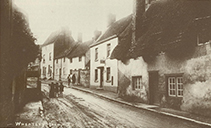 Major-General Desborough then delivered a stirring address, and said that his heart was very full in regard to the work they had met that evening to inaugurate. Mrs. Miller had solved the very great difficulty of bringing the poor and the rich into deep sympathy. There was not doubt that the erection of such a building as that in which they were then gathered together was a wise step on the part of Mrs. Miller. He only trusted that the lady would not regret what she had done, and that the place would be attended with a large amount of success not only from secular but from a spiritual point of view (Applause.)
Major-General Desborough then delivered a stirring address, and said that his heart was very full in regard to the work they had met that evening to inaugurate. Mrs. Miller had solved the very great difficulty of bringing the poor and the rich into deep sympathy. There was not doubt that the erection of such a building as that in which they were then gathered together was a wise step on the part of Mrs. Miller. He only trusted that the lady would not regret what she had done, and that the place would be attended with a large amount of success not only from secular but from a spiritual point of view (Applause.)
The Rev. W. H. Moull delivered a very humorous address, which pleased his hearers very much. He spoke of the evils of intemperance, and suggested that his hearers should consider the matter from the “L.S.D.” as well as other points of view. Having urged all present to become teetotallers, he appealed to them to make the best possible use of the advantages now placed within their reach by means of the Coffee House. They should read and examine the books for their use, learn all they could, and use their own judgement so as to become intelligent men. They would then find that when their fathers “stepped the plank” and had gone into the other world they would be an honour to themselves, an honour to Wheatley and an honour to the neighbourhood (Applause.)
The CHAIRMAN next called upon the Rev. E. Bird to move a vote of thanks to Mrs. Miller for the splendid building she had erected and the excellent provision she had made for the people’s good.
In doing so, Mr. Bird said when he received the invitation from Mrs. Miller to be present, and that was only the previous evening, he did not know what he would say; but he had put his thoughts together, and he wished to move a vote of thanks in the following words:-
The Merry Bells of Wheatley
The merry bells of Wheatley
Are sounding out tonight,
Filling the hearts of fathers
And mothers with delight;
Telling the pleasant tidings
Of brighter days in store
For village lads and lasses
And just a thousand more.
A full and hearty welcome
They give to you and me,
Come here, and sip your coffee,
Your cocoa, and your tea;
Come here and get your dinner
From viands of the best;
Come here and read the papers;
Come here and take your rest.
Come here and have your pleasures,
Your music and your fun;
Come here and talk together,
When daily toil is done;
Come here and learn of science,
Of arts, and other things;
Come, hear the prima donna,
How splendidly she sings.
The merry bells of Wheatley,
A Miller’s name they tell,
A noble hearted woman,
Who set them going well,
For good of other people,
She hung them up on high,
To stop the orphan’s wailing,
The little children’s cry.
Ring on ye bells of Whatley,
Three cheers we want to give,
To Shotover’s fair lady,
And wish her long to live;
To live to see this building,
Appreciated, used,
For ev’ry useful purpose,
And never more abused.
(Cheers and applause.)
During the evening Miss Biscoe and Miss Bennett sang some very pleasing songs for which they were deservedly applauded.
Mrs. Miller having replied.
The CHAIRMAN pronounced a blessing, and the meeting came to a close. All declaring it to have been a red-letter day in the history of Wheatley.
